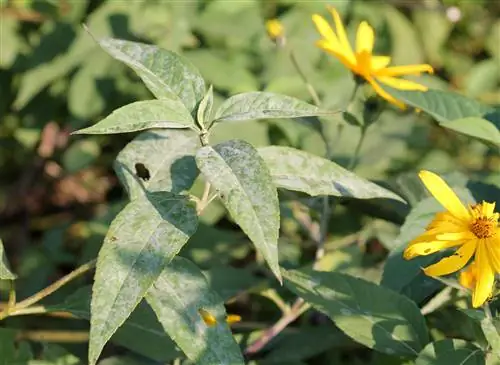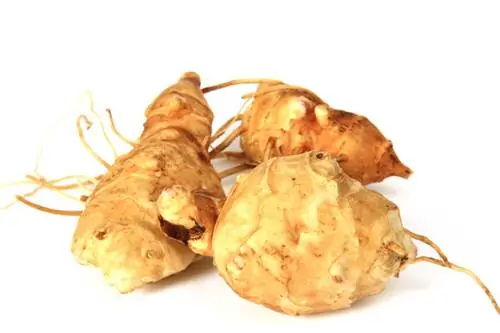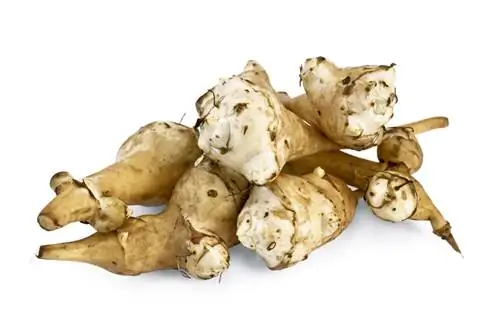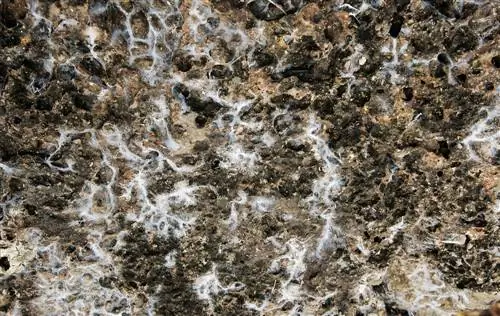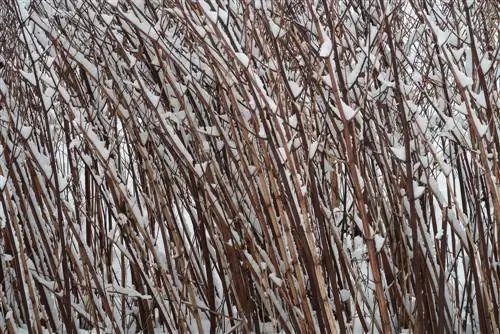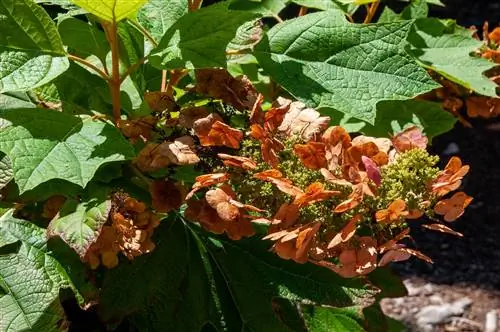- Author admin leonars@hobbygardeners.com.
- Public 2023-12-16 16:46.
- Last modified 2025-01-23 11:22.
Jerusalem artichoke is a he althy and delicious alternative to potatoes. The robust plants can also be grown in your own garden and are comparable to potatoes. Unfortunately, the harvest is often smaller due to powdery mildew infestation.
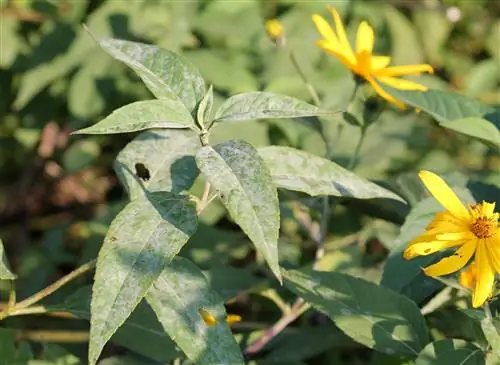
How do I recognize powdery mildew on Jerusalem artichokes?
You can recognize powdery mildew on Jerusalem artichokes by awhite fungal coating on the top of the leaf. If this coating can be wiped off by hand, you can be sure that it is powdery mildew.
How do I combat mildew on Jerusalem artichokes?
The best way to combat powdery mildew on Jerusalem artichokes iswith home remedies[/link Using milk as a spray is particularly promising. Only use whole milk or whey that contains sufficient lactic acid. Make the spray solution from 2 parts water and one part milk. Alternatively, you can also make a spray solution against mildew using baking soda and rapeseed oil. You should treat the plants for powdery mildew at least twice a week and after every rain. First remove all affected parts of the plant.
How do I prevent mildew on Jerusalem artichokes?
Preventing powdery mildew on Jerusalem artichokes consists ofstrengthening the plants Since the spores of the fungus are spread by the wind, concrete defense is difficult. However, you can strengthen your Jerusalem artichokes by using horsetail decoction. The silica it contains strengthens the cell walls. This makes it more difficult for pathogens to penetrate the cells. Avoid fertilizers with high nitrogen content. This causes the plants to grow excessively, which causes the leaves to soften.
Tip
Early varieties of Jerusalem artichoke
Powdery mildew usually occurs in dry and warm summers. There are early varieties of Jerusalem artichoke that can be harvested as early as the end of August. These plants have predominantly formed strong tubers for harvesting until powdery mildew infestation has spread.

